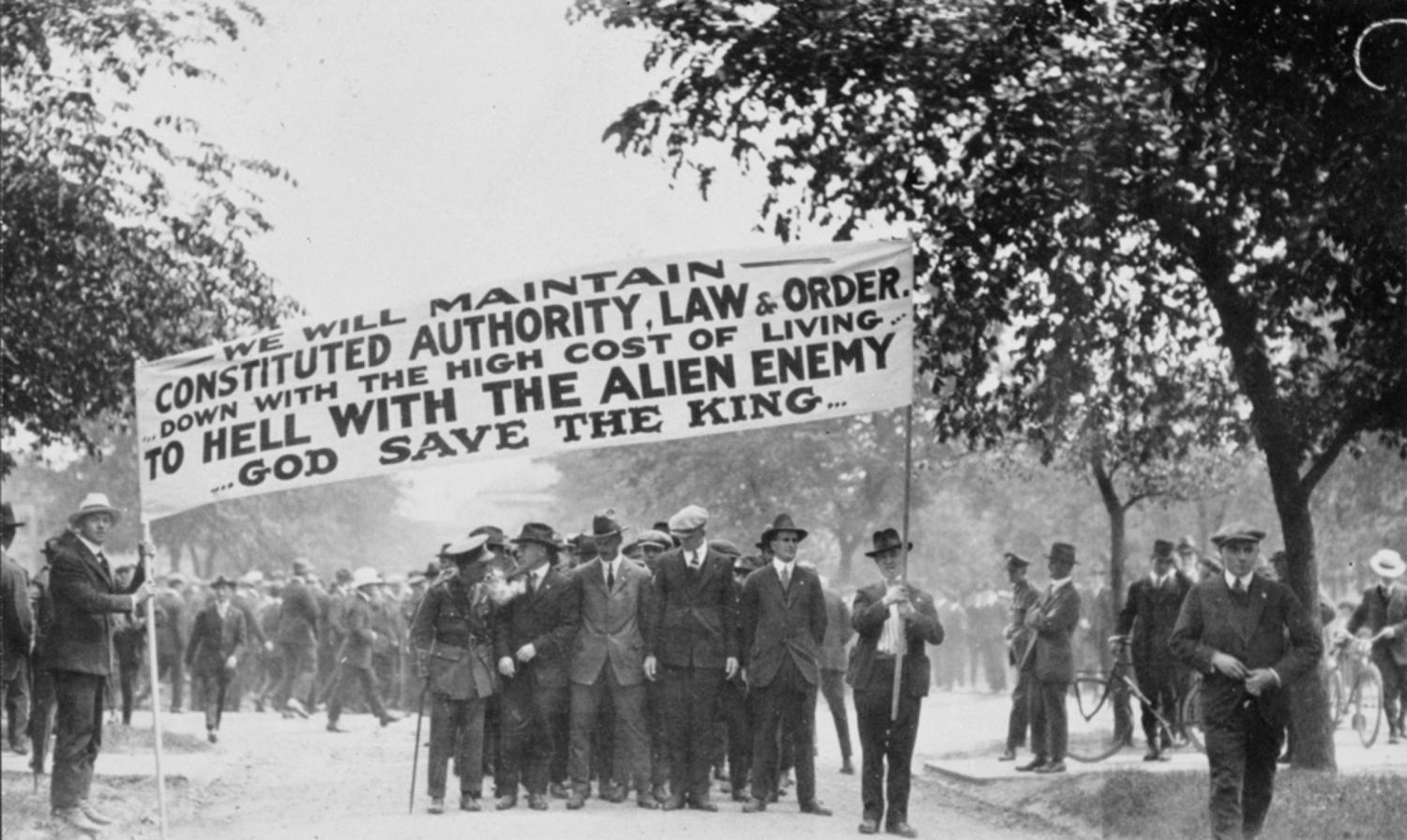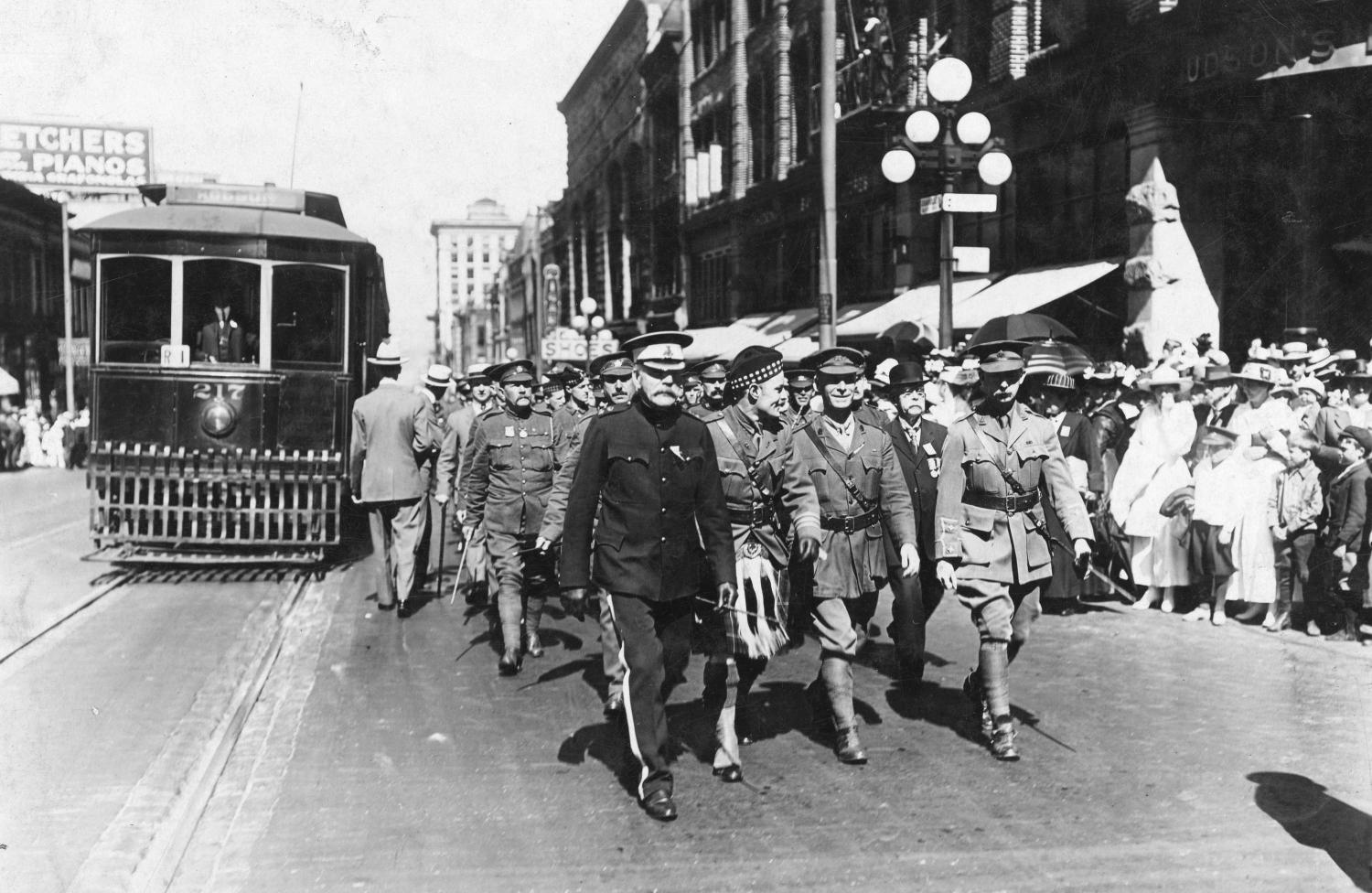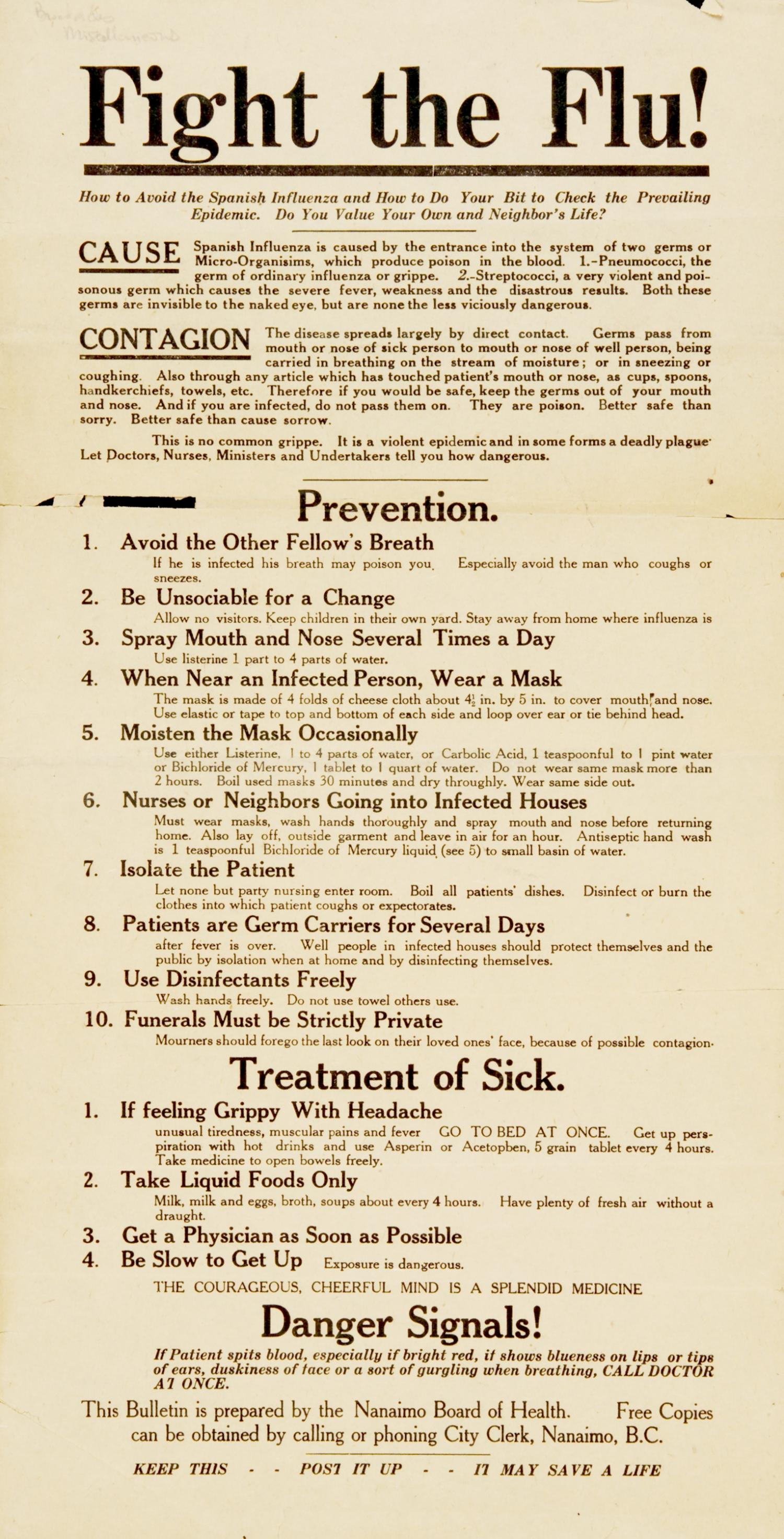First World War Ends
Soldiers return to Canada — accompanied by a deadly new virus
Date: 1918
In the early hours of Nov. 11, 1918, delegates from different European countries gathered in a clearing in a French forest. After years of bloodshed, Germany, France, and Britain had come to a truce. An armistice was signed, and at 11 a.m., a ceasefire came into effect. The Great War was finally over.
Canada, too, had proven itself in the sacrifices and accomplishments of its soldiers. Thanks to its contribution, the country had earned an invitation to the Paris Peace Conference at Versailles and a seat at the new League of Nations.
But upon returning home, soldiers found a world most changed. Jobs were now hard to come by; the value of any money earned was in flux; there was inadequate care for the wounded; and, another global war seemed to hover over the horizon. As future prime minister and WWI veteran Lester B. Pearson later put it, the end of the so-called ‘war to end all wars’ was “not peace, but a reprieve.”
The conflict had left lasting scars. More than 55,000 British Columbians had enlisted; 6,000 never made it home. Of those who survived, some returned with Spanish influenza, a deadly new virus that would kill around 4,000 in B.C. — and 50 million worldwide.
But perhaps what was hardest to contend with was that after years of patriotism and hard battle, the new veterans came home to a country that didn’t know what to do with them. The government’s earlier promises of postwar employment and support largely fell flat. By the 1920s and 1930s, most soldiers did not qualify for a federal pension. The federal government devised a plan to ostensibly employ several hundred thousand through the Soldier Settlement Act, a program that provided loans to help veterans buy farmland. Those eligible would undergo agricultural training. More than 19,000 acres were set aside in B.C., primarily in the central Interior. And yet, the program was ultimately a flop. Only 53 soldiers returning to B.C. took advantage of the deal.
Disappointment quickly turned to disillusionment and discontent. It seemed like civilians were more enthusiastic in remembering the dead than supporting those who had made it back. This newfound bitterness was not exclusive to Canadian veterans. Across the world, young men were joining the growing ranks of what would be known as the “Lost Generation.” Following the war, thousands would join groups like the Great War Veterans Association, demanding remunerative compensation for years of lost income. While their efforts would mostly prove fruitless, a seed of activism had been planted. In the coming years, many would become active participants in a different kind of war: a battle of classes, not nation-states.
Sources:
1. The Legislative Assembly Remembers the First World War: 1914-1918. Province of British Columbia, www.leg.bc.ca/content-peo/Learning-Resources/BC-Legislative-Assembly-Vimy-Ridge-Display-Panels-1-2-English.pdf.
2. 1918 Pandemic (H1N1 Virus). Centers for Disease Control and Prevention (CDC), www.cdc.gov/flu/pandemic-resources/1918-pandemic-h1n1.html#:~:text=It%20is%20estimated%20that%20about,occurring%20in%20the%20United%20States.
3. Belshaw, John Douglas. Becoming British Columbia: a Population History. UBC Press, 2009.
4. “Benefits and Land for Veterans.” Canada and the First World War, Canadian War Museum, www.warmuseum.ca/firstworldwar/history/after-the-war/veterans/benefits-and-land-for-veterans/.
5. Hixson, Russell. “Remembering the Impact of 1918 Spanish Flu Outbreak on B.C. Workers.” Journal Of Commerce, 16 Mar. 2020, canada.constructconnect.com/joc/news/labour/2020/03/remembering-the-impact-of-1918-spanish-flu-outbreak-on-b-c-workers.
6. Koroscil, Paul M. “Soldiers, Settlement and Development in British Columbia, 1915-1930.” BC Studies, Summer 1982, ojs.library.ubc.ca/index.php/bcstudies/article/view/1127/0.
7. Mickleburgh, Rod. On the Line: a History of the British Columbia Labour Movement. Harbour Publishing, 2018.
8. Morton, Desmond. First World War (WWI). The Canadian Encyclopedia, 5 Aug. 2013, www.thecanadianencyclopedia.ca/en/article/first-world-war-wwi.
9. Scotland, Jonathan. And the Men Returned: Canadian Veterans and the Aftermath of the Great War. Western University, July 2016, ir.lib.uwo.ca/etd/3662/.



![A painting entitled "To her undying honor" [sic]. A soldier presents a flag with the names of the major battles of World War I on it to a personification of Canada]](https://bc-timeline-backend.azureedge.net/sites/default/files/styles/gallery_resized/public/images/2-4%20LAC%203000604.jpg)

